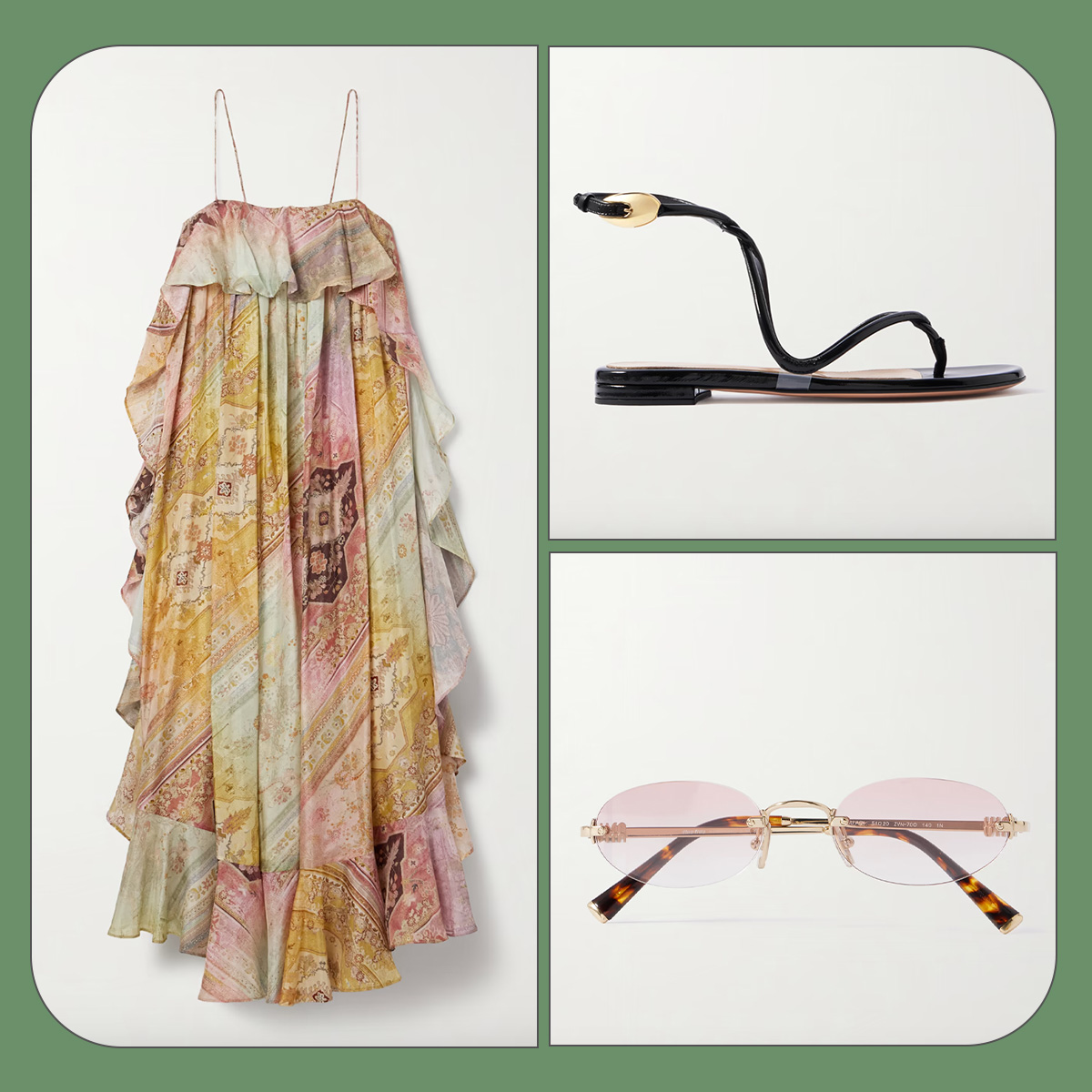I've Worked With Dermatologists for 10 Years to Nail a Simple Skincare Routine—This Is My Cheat Sheet
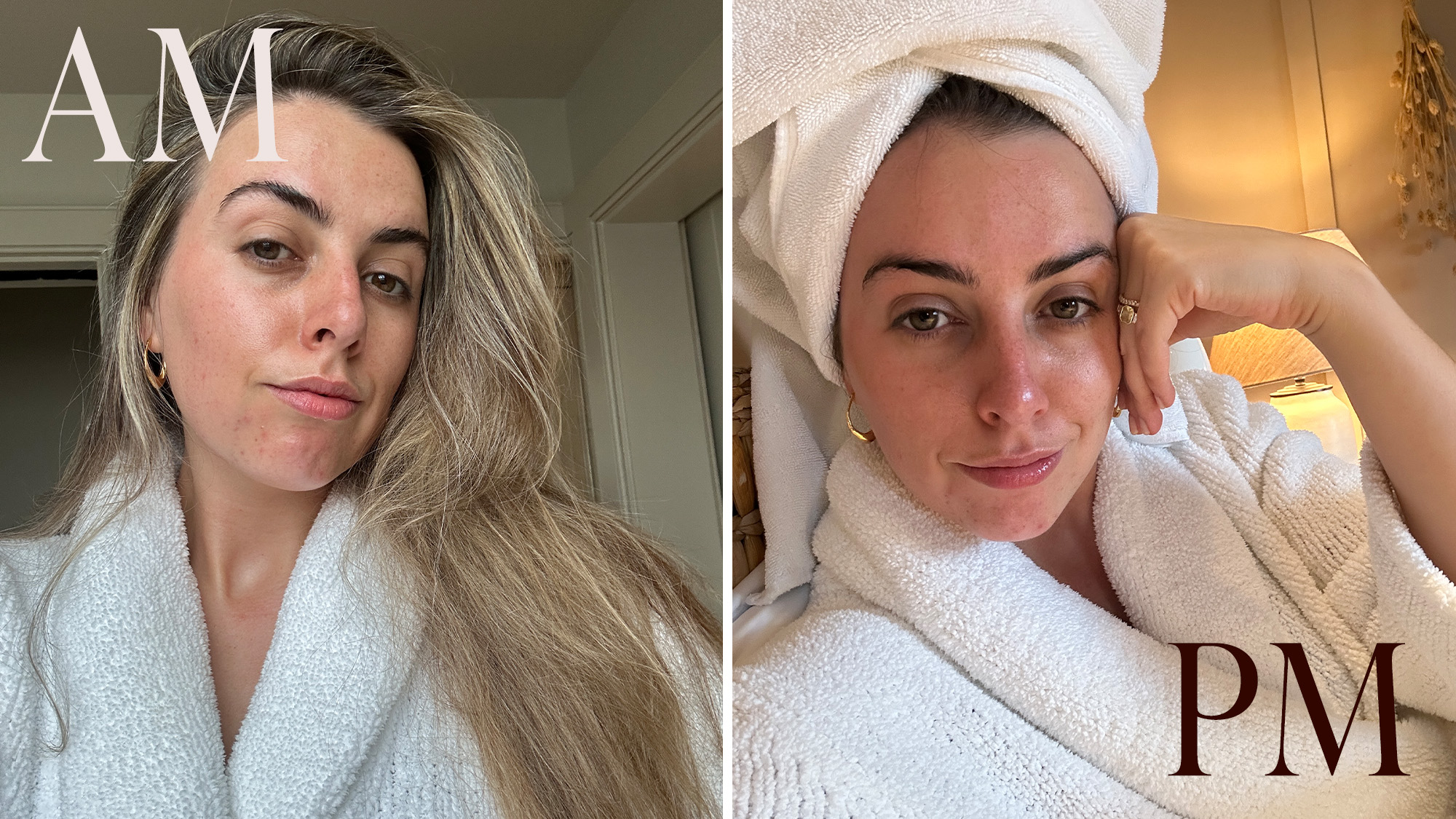
Despite having worked in beauty journalism for over 10 years, it has taken me a very long time to nail even a basic skincare routine. I speak with skin experts and dermatologists all day long and have been a patient/client to many of the nation's best. And while this puts me in pretty good stead when it comes to understanding the makings of a perfect skincare routine, that's not to say I find it easy actioning the steps myself.
You see, I am a lazy girl through and through, and long-winded, 10-step routines simply do not fit into my daily life. Beyond that, because of my close ties with dermatologists, I am also all too aware of the risks of getting your skincare routine wrong. "Too many products can minimise the efficacy of your chosen active(s) and makes it harder for you to know which step is really key in impacting your skin's appearance. As a guide, cleanse twice daily, follow with a vitamin C serum and SPF in the morning and consider a retinol and moisturiser at night. These ingredients work to combat signs of ageing, brightening and hydrating the skin," says cosmetic doctor, dermatologist and founder of Dr Nyla Medispa, Dr Nyla Raja.
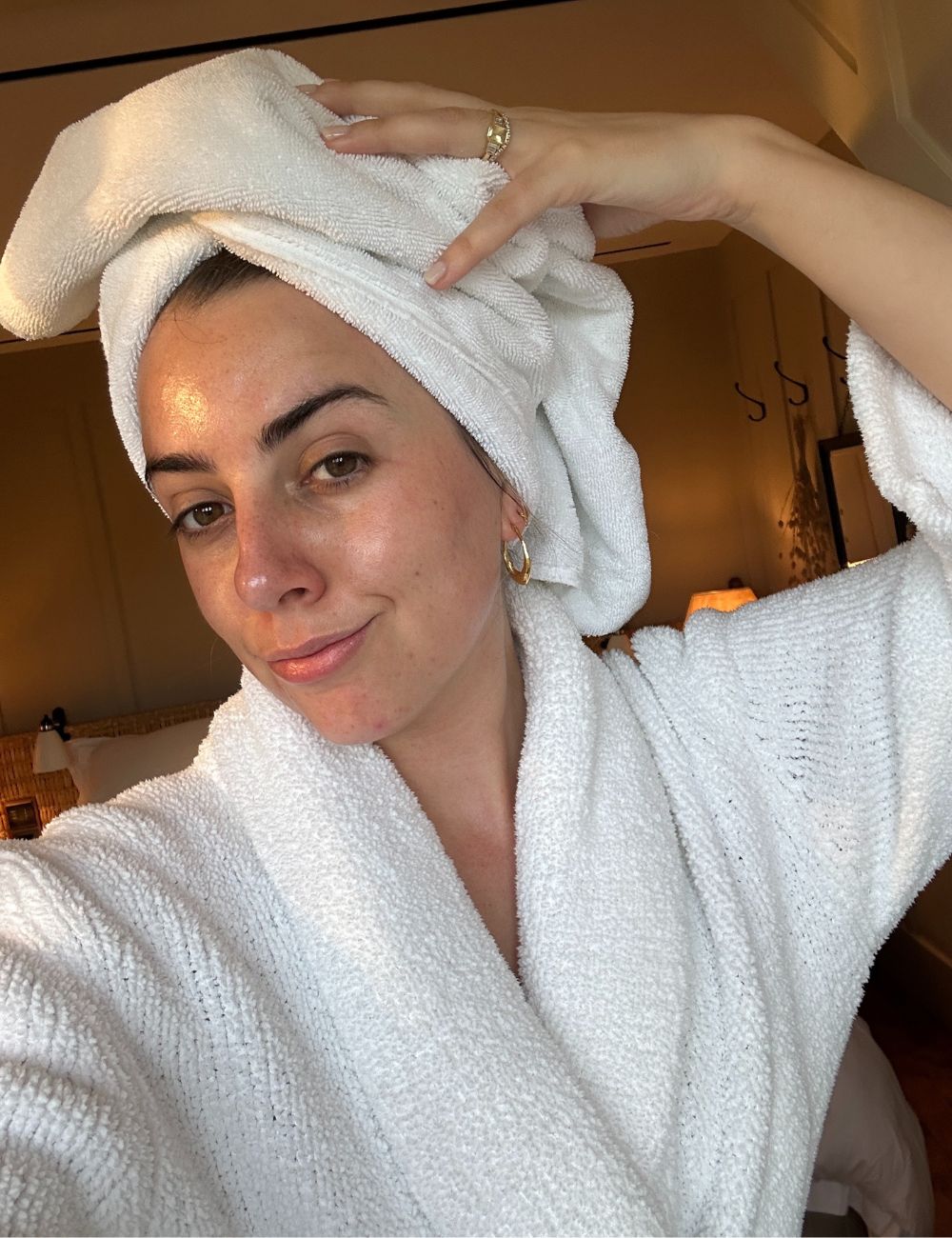
I have spent the past decade picking the brains of every dermatologist and facialist I know in a bid to get my quick skincare routine right. Along the way I have experienced rashes, angry breakouts and even skin peeling—but with good skin firmly on this year's beauty trend agenda, I made it my mission to find the perfect basic skincare routine before 2025 kicked off. "In 2025, more people will aim for clear, glowing skin with minimal makeup. This shift to healthy, radiant skin drives investment in treatments that enhance texture, tone and clarity, reducing the need for heavy makeup and embracing a more radiant, natural look, helping to redefine beauty standards in 2025," says expert facialist, Kate Kerr.
And I am pleased to announce that I have finally sussed the ultimate simple skincare routine for lazy girls. Why has it taken me so long? Because skincare advice from experts is, typically, tailored to individual concerns. Any reputable skin expert knows that skincare is not one-size-fits all, so the optimum basic skincare routine typically comes with countless caveats—and this can make them hard to digest. But now, after years of trial and error, I think I have finally sussed it enough to put things into layman's terms for everybody. So, here it goes, the simple skincare routine every time-poor person should know.
My Skin Type & Concerns
Before we get into it, I would like to make it clear that after many years working as a beauty journalist and writing about skincare, you can trust that my general advice takes all skin types and concerns into account. Having said that, I thought it would be good to give context of my own skin type, first.
I have combination skin that can prove reactive (rather than sensitive) and is prone to redness. I also battle with congestion and blackheads on my T-zone, fairly aggressive cystic acne along my jawline and dryness around my mouth. Personally, I look towards gently decongesting products that work to keep my breakouts at bay, but also protect and nourish my skin barrier to battle dryness and flaking.
EVENING
Yes, we're doing this back-to-front and starting with the ultimate simple evening skincare routine—purely because this is the most important and hardest working part of your regimen. You should think of your evening skincare routine as your total refresh—clearing the day's dirt and priming your skin for those actives that Dr Raja mentions.
1. Cleanser
First and foremost, a double cleanse in the evening is probably the most important part of your entire routine to get right. Not everyone needs to double cleanse, but given the fact most of us wear makeup and/or apply SPF in the morning, it is highly recommended—particularly if you have oily skin. "You only need to double cleanse at nighttime if you wear makeup, have oily skin or struggle to remove your SPF," says GP and award-winning aesthetician, Dr Ahmed El Muntasar. For most of us, at least one of these applies.
Double cleansing essentially means cleansing your skin twice with a cleanser—once to remove makeup, SPF and surface-level oil and a second time to make sure its all gone and the skin's surface is free from any irritating bacteria. While a micellar water can count as your first cleanse, I wouldn't recommend it. "Micellar water can do the job but it doesn't get rid of things as efficiently. Plus, rubbing on the skin can be quite traumatising and drying," adds Dr El Muntasar. Instead, I've found the best course of action is to opt for a gentle cleansing balm or oil cleanser as your first cleanse. Then, follow up with a more pore-targeting wash-off cleanser, such as a cream or gel formula.
The cleanser in which you choose for your second cleanse should work with your individual skin concerns. For me, I like to use a decongesting foaming cleanser, but those with drier skin types might prefer a no-fuss, barrier-kind formula. Whatever your concerns, you can't go wrong with a cleanser from CeraVe.
My cleansing balm picks
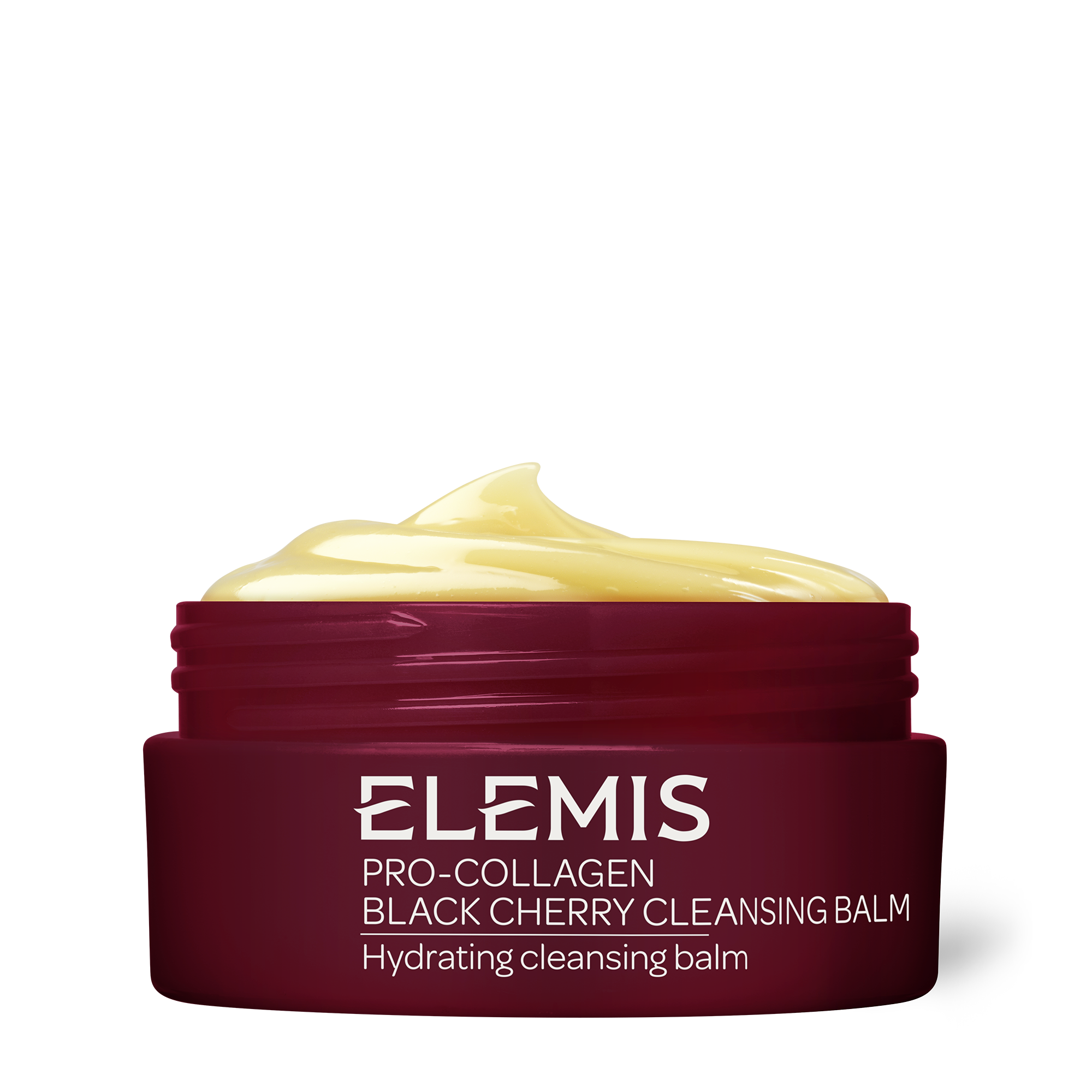
For when I want to treat my skin to a little bit of spa-like joy, Elemis Pro-Collagen Cleansing Balm can't be beaten for an initial first cleanse. This new Black Cherry scent smells unbelievably good—although be warned, the fragrance means it's not one to use on your eyes.
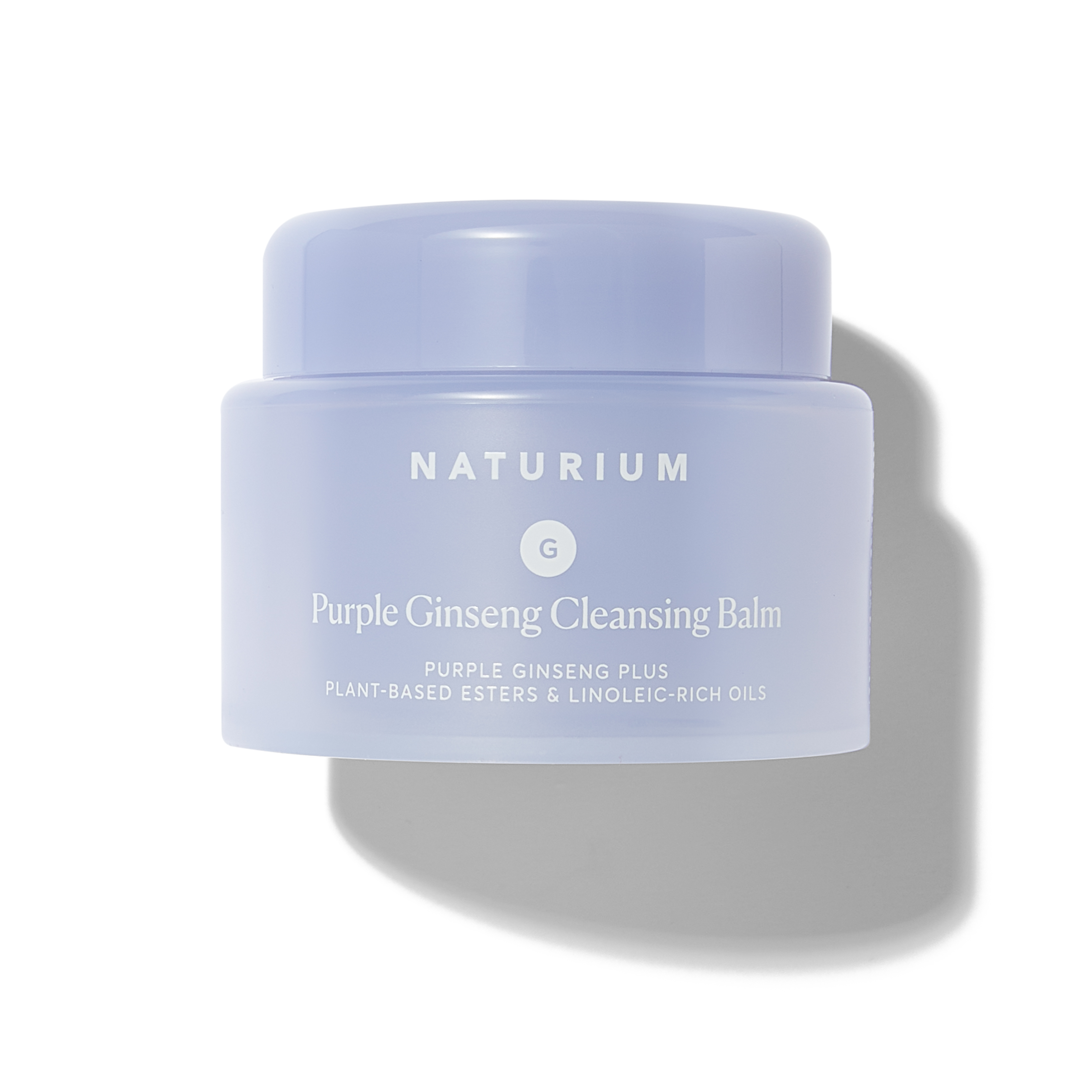
For a basic, all-over cleansing balm that can be used on the yes, this unscented, gentle-on-the-skin formula from Naturium melts everything away in a matter of seconds.
2. Toner
I'm going to be honest here—I have never found a dermatologist or skin expert who says you absolutely must use a toner in your routine. If you have normal-dry skin, I would agree that a toner probably isn't a necessity. However, when toners fell out of fashion a few years ago, I stopped using them (remember, I'm looking to save time wherever I can). But, last year, during a particularly bad bout of acne, I decided to start incorporating them into my routine once again—and the results have been astonishing.
Toners come in all shapes and sizes, from hydrating essences to overly harsh exfoliators—so choosing the right product is imperative. In order to do this, you really need understand the cause of your skin concerns. If your breakouts are down to irritation and a compromised skin barrier, you'll benefit from a hydrating toner. If, however, your breakouts are down to excessive oil production, like mine are, a gently exfoliating formula might be a good idea.
Not only does a toner help to remove anything left on the skin after cleansing (seriously, even after a double cleanse I still find remnants of makeup on my cotton pad after toning), but it also acts as a stage for getting a targeted treatment in—whether than be in the form of exfoliating salicylic acid, glow-boosting glycolic acid or nourishing ceramides.
My toner picks
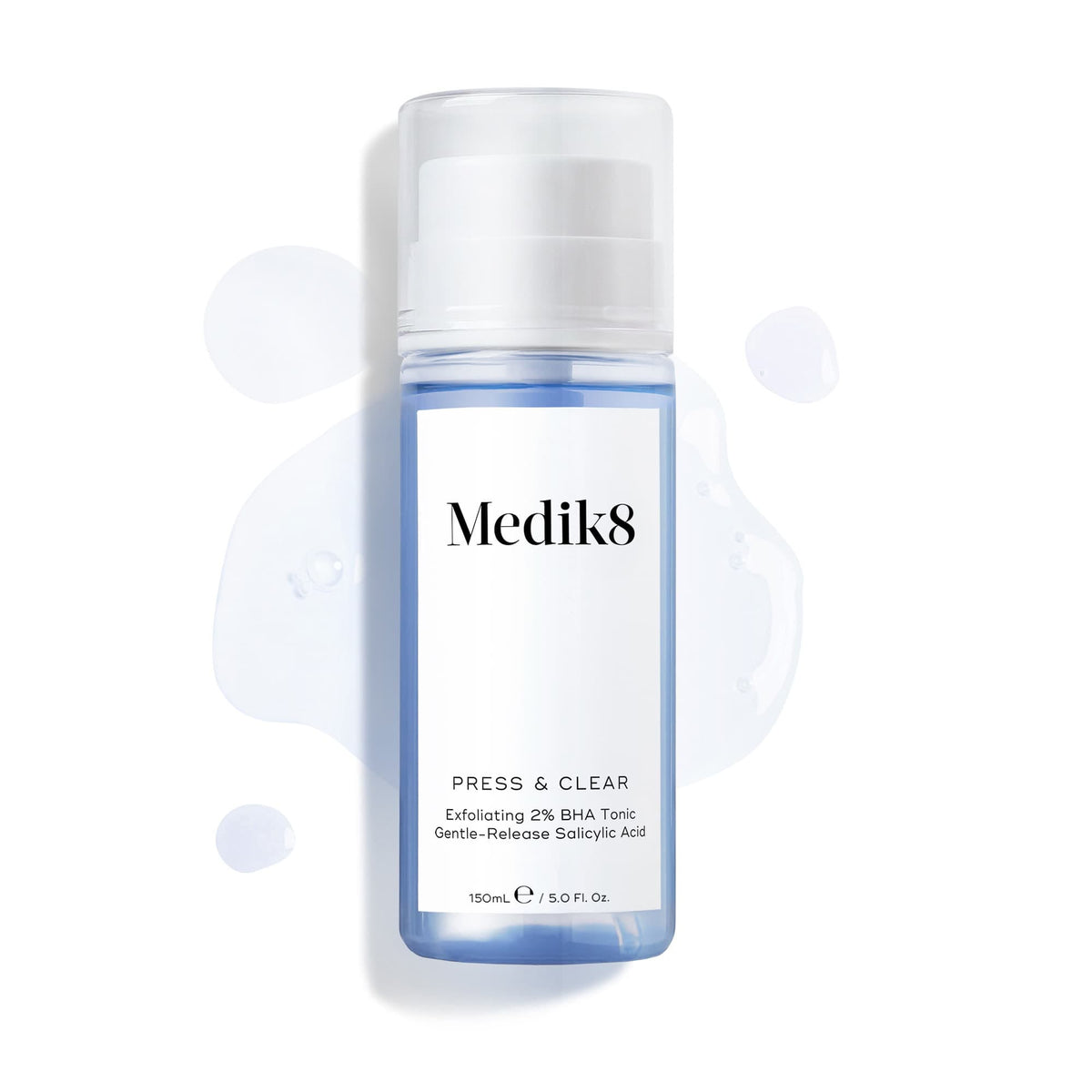
This stuff from Medik8 has really changed the game for me, and I think it might change the game for anyone else who battles breakouts, too. With a gentle-release salicylic acid, it helps to decongest pores, calm active breakouts and slough away at dead skin cells. It isn't as active as other toners of its kind, but for me it's just right.
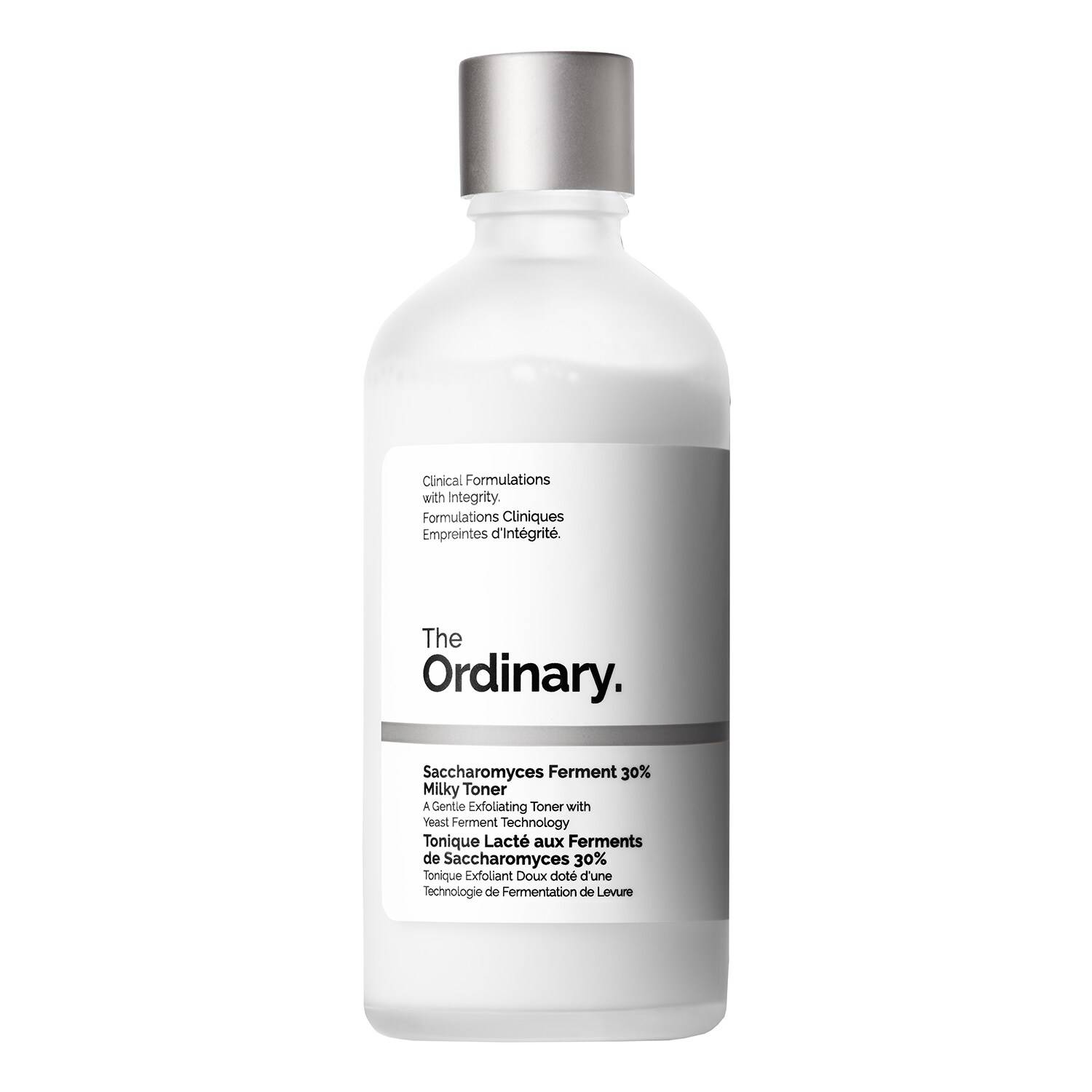
This toner is also great for decongesting skin, but it does so without relying on any acids. It utilises saccharomyces ferment to gently exfoliate, improve skin texture and reduce the appearance of dark spots.
3. Treatment
You'll notice here that I have not called out retinol as a must-have step in your simple skincare routine. This is because, in my opinion, retinol is not a simple skincare ingredient. It is hard to find the right product, and once you have, it is hard to get the application process right. In my 10 years of simple skincare research, even as a beauty editor, I have still not found the right retinol routine for my own complexion—and I'm fine without it for now.
If, however, you do want to use a retinol serum to target skin texture and fine lines, this is when you would apply it. In fact, this is the stage in which you apply any serum that suits your skin best. In the name of keeping things universal and simple, I most highly recommend incorporating a great repair serum here, like a hyaluronic acid serum. This delivers a further hit of lightweight hydration that your skin is likely craving after its double cleanse and tone. While it's not an absolute necessity, if you're after healthy-looking skin, one highly effective night serum is seriously recommended.
My evening serum picks
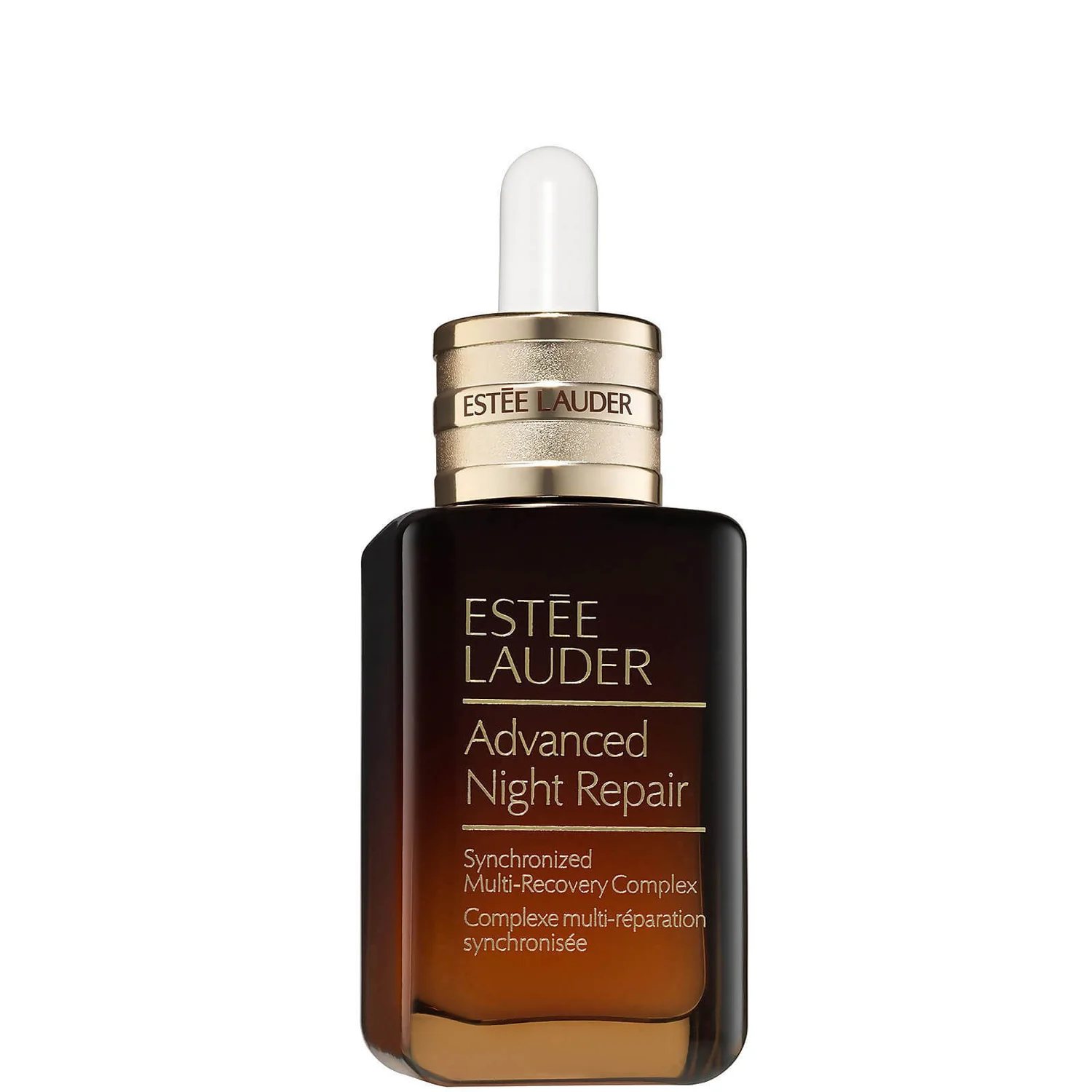
In my opinion, this is the best serum ever made. It contains a really hardworking peptide complex that helps to aid skin regeneration, and this complex sits in a very effective hyaluronic acid formula. Above everything, it is gentle, non-comedogenic and unlikely to cause any irritation, making it a great no-fuss addition to any routine.
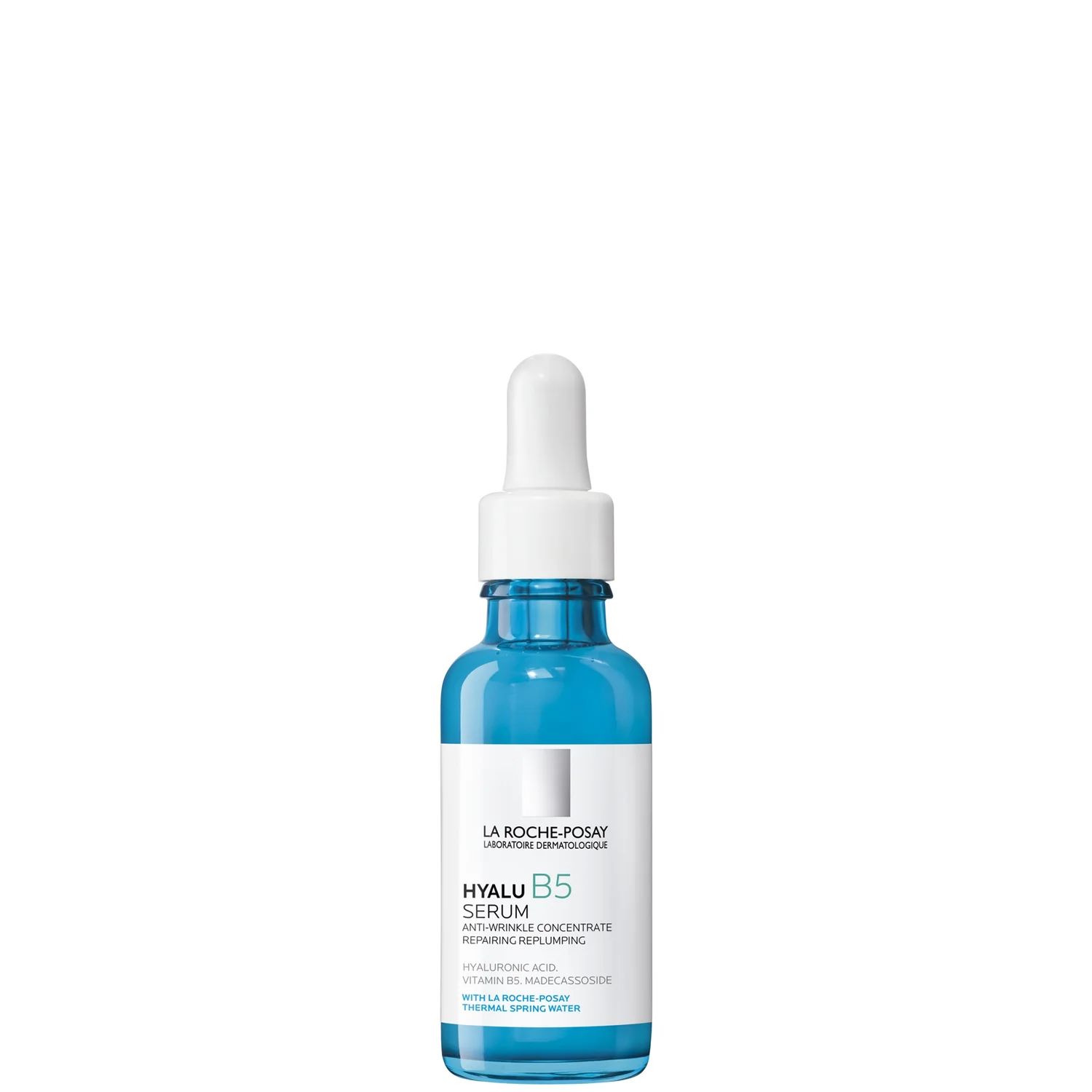
Your skin will always thank you for lightweight hydration, particularly post-cleanse, and this basic hyaluronic acid serum is one of the best ways to go about it.
4. Moisturiser
A good moisturiser at night is absolutely imperative. I have experimented with forgoing night-cream application before, and it hasn't turned out well for me. So, trust me: a moisturiser is imperative for a healthy skin barrier. "The skin barrier is the top layer of skin that is made from cells and lipids," says Dr El Muntasar. "A compromised skin barrier can cause issues like redness, dryness and sensitivity."
After cleansing and exfoliating, it's important to apply moisture to ensure your barrier stays in check. And, for the most part, your night cream of choice doesn't have to be fancy—particularly if you're applying your active ingredients at the treatment stage of your evening skincare routine.
My night cream picks
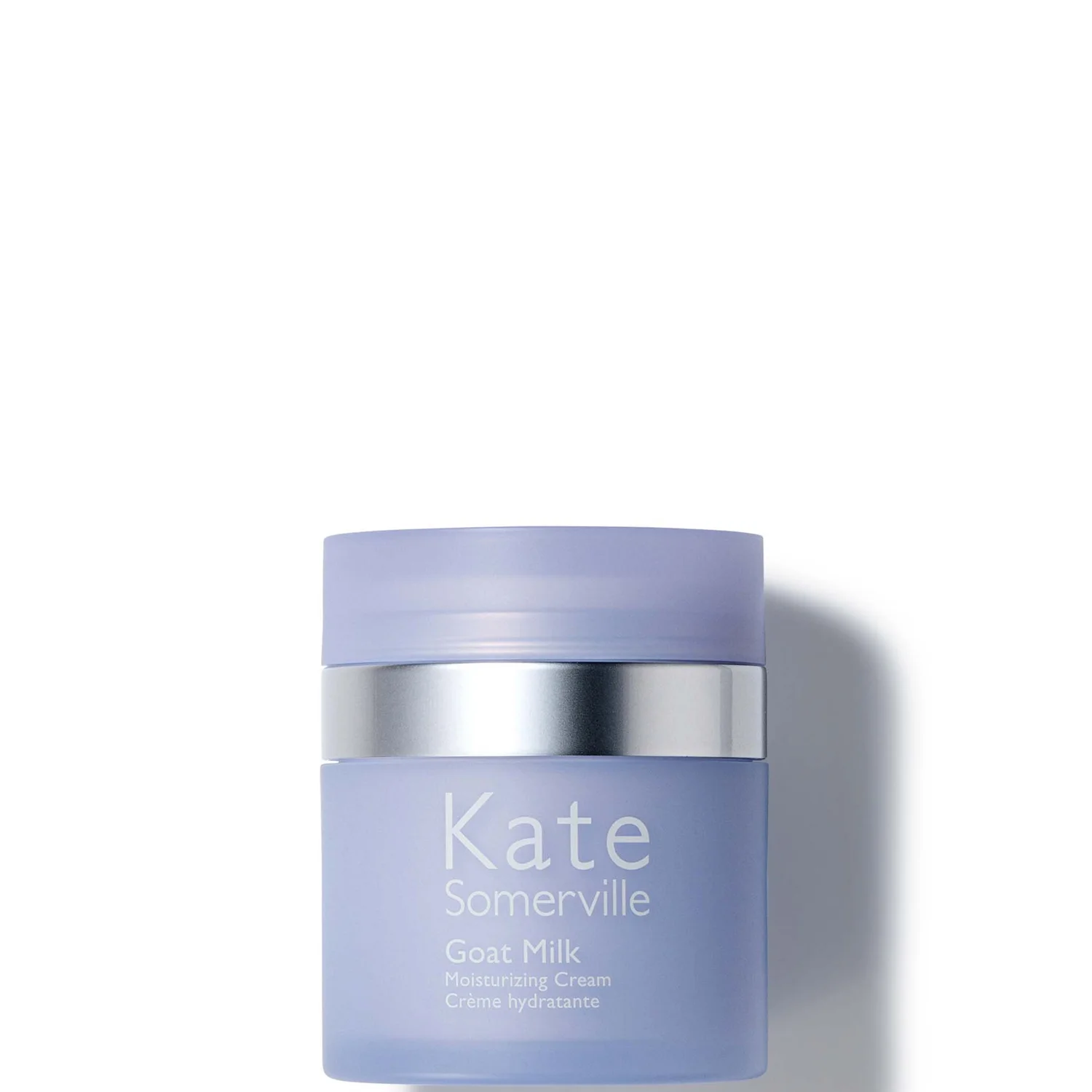
This has been my go-to night cream for as long as I can remember, and whenever I don't use it I notice a real dip in glow. It is formulated for all skin types, including sensitive skin, and works specifically to support the skin's natural moisture barrier. Trust me, use this once and be astounded by your skin's radiance come morning.
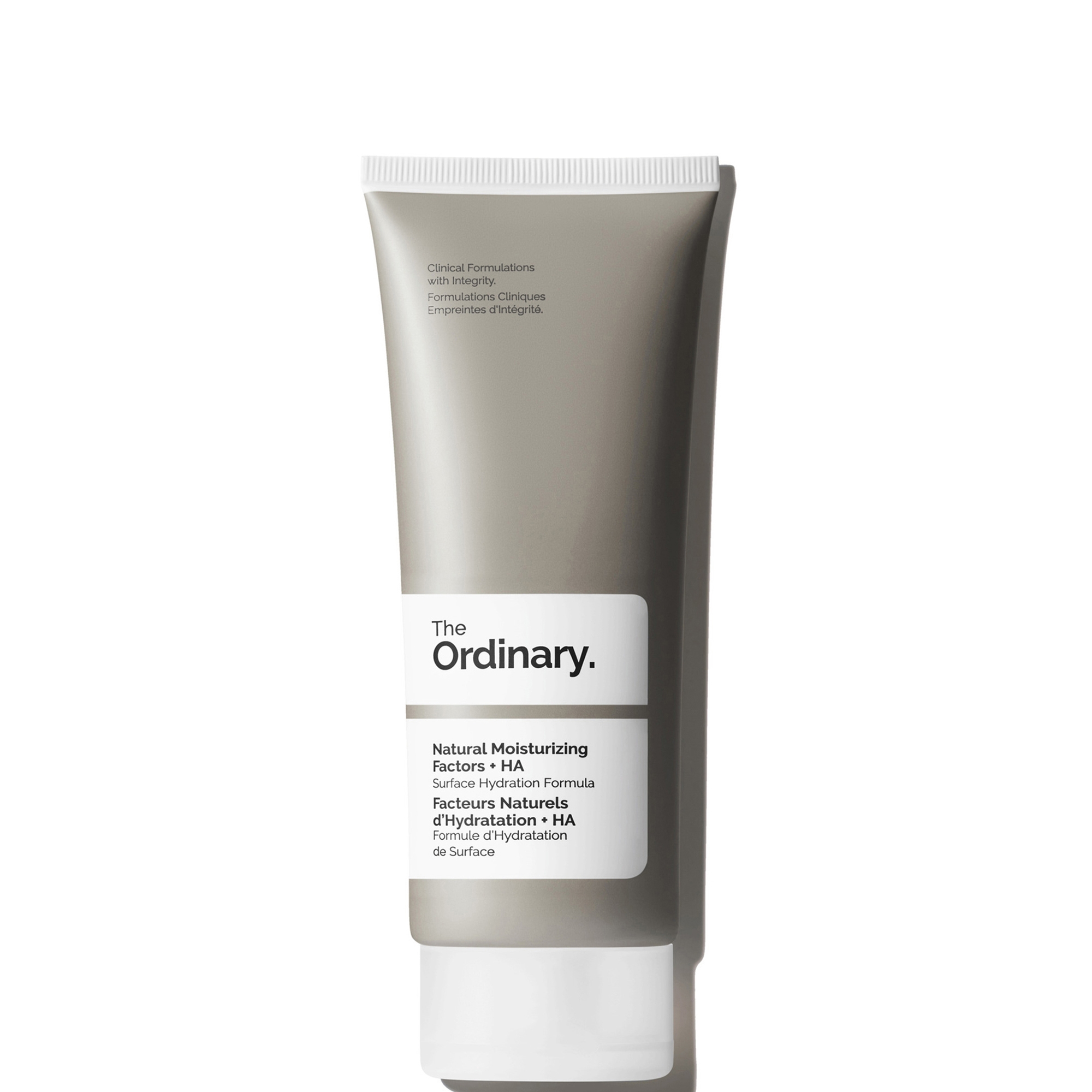
Like I said, your night cream doesn't have to be fancy—and this stuff proves it. As a no-frills, deeply hydrating face cream, it's almost impossible to go wrong with it.
MORNING
Come morning, you should be waking up with your skin in pretty good shape. If you've got the above evening routine down to a fine art, you can expect to wake up with a plump glow—but the fun keeps coming. Your morning skincare routine is about setting your skin up for the day ahead and giving it all of the tools it needs for defence.
1. Cleanser
I know that it's a bit of a TikTok trend to not wash your face in the morning, but please don't listen to this advice. The most instrumental person in helping me forge a great basic skincare routine has, hands down, been aesthetician and co-founder of Mortar & Milk, Pamela Marshall. The first thing she taught me was just how important it is to wash your face in the morning with a wash-off cleanser.
Our pillows are breeding grounds for bacteria, and even if you are washing your face every night, you only have to think about all of the excess skincare product, natural skin oils and, more grossly, sebum from your scalp that ends up on your pillow after a night's sleep. Those who swear off a morning cleanse have probably just never found the right cleanser for the job.
Sadly, I would say finding the right morning cleanser for you might take some trial and error. If your skin is normal-dry, a no-frills cream cleanser should do it. If, like me, your skin is a little oilier, you might want something more purifying but still gentle.
My morning cleanser picks
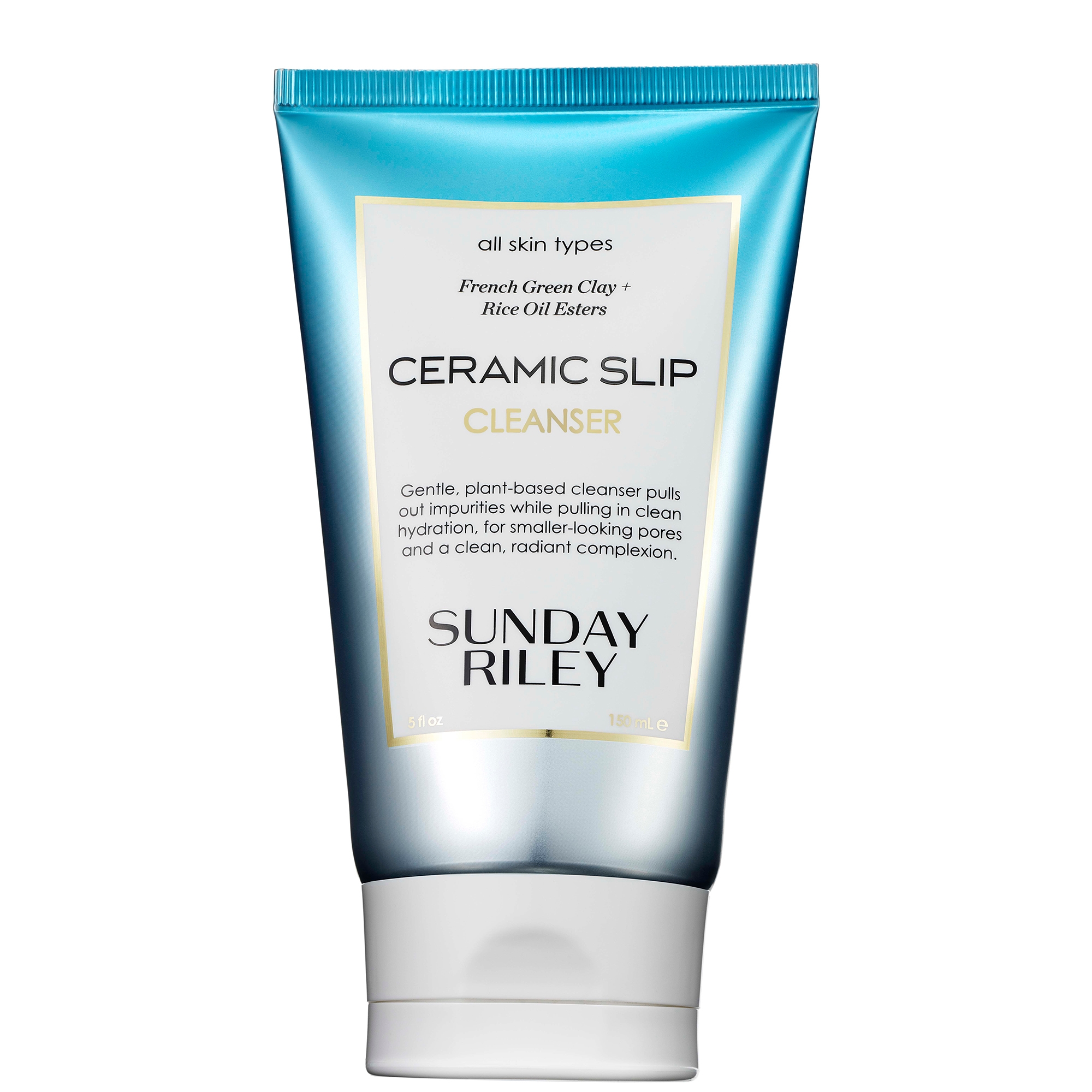
This cleanser is great for those who have congestion-prone skin and prominent pores. I use it religiously as my second cleanser in the evening, and I often use it again in the morning. It contains three types of clay to help with excessive oil production and pore refinement, but also contains plant-based soaps that aren't too harsh on your skin barrier. If I find that my skin is looking a little dehydrated, I'll lay off this stuff in the morning and opt for something more gentle, like the below.
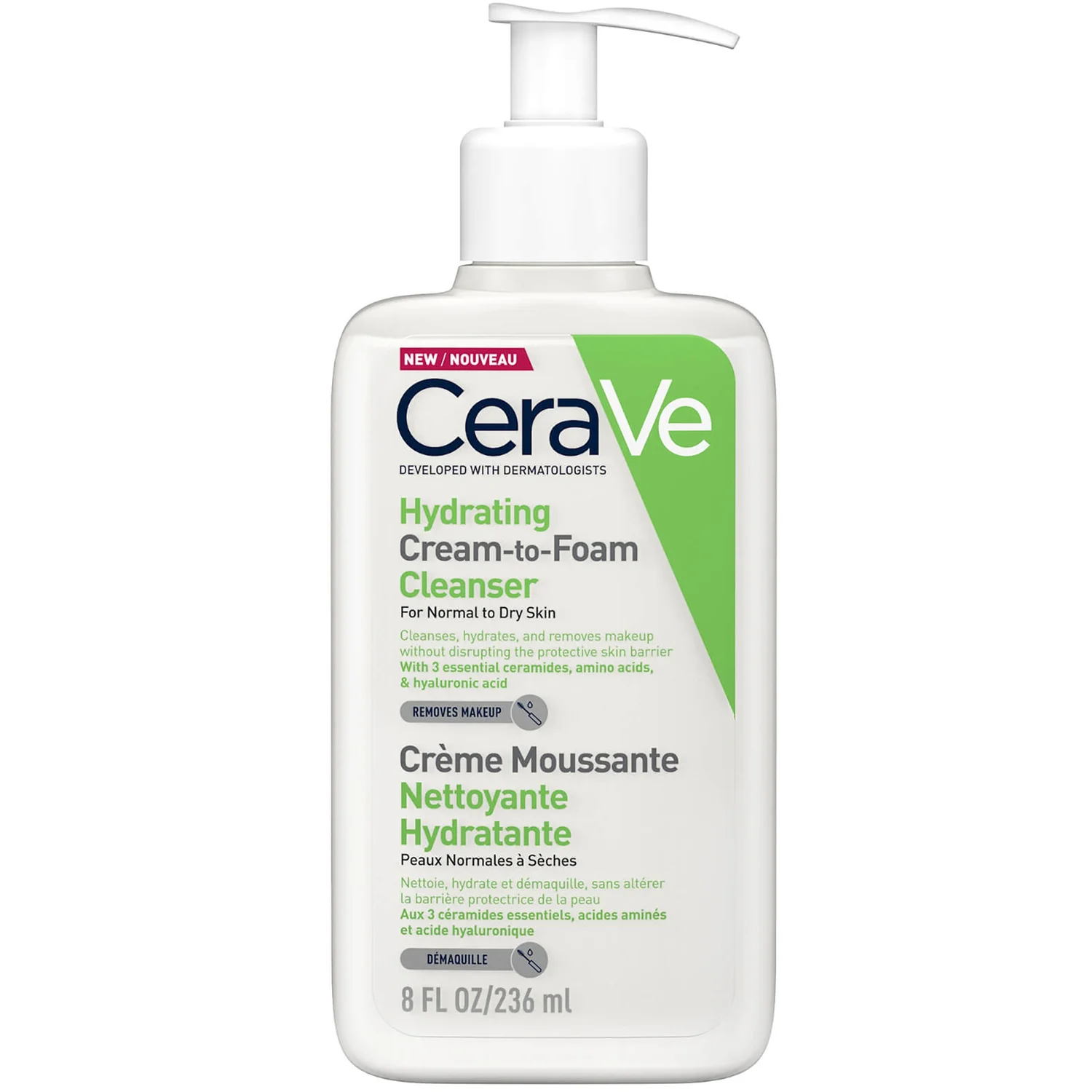
Honestly, you can't go wrong with this stuff as a morning cleanse. It contains ceramides and hyaluronic acid to keep your barrier in check, and has a cream consistency that proves gentle on the skin. When it meets water though, it lathers into a gentle foam to really target congestion.
2. Eye Cream
So many experts and insiders that I have spoken to over the years have told me that an eye cream isn't a must-have product in your routine—but I disagree. There is one person who I trust wholeheartedly when it comes to eye care, and that is consultant ophthalmic and oculoplastic surgeon, Dr Elizabeth Hawkes.
As a true expert in all things related to the eyes (and the skin that surrounds it), she is probably the only expert I would actually consider listening to when it comes to eye cream. "The skin around your eyes is unique and therefore requires very special care. It has fewer sebaceous glands than the rest of the face therefore requiring more hydration. It has larger corneocytes with slower turnover of skin and therefore more prone to developing milia," Dr Hawkes says.
And because I am, in fact, prone to developing milia (those small white bumps that can crop up around your eyes if you are applying creams that are too rich), I only opt for eye cream in the morning in a bid to help brighten my dark circles. The key to great application is in a gentle approach. "You do need to be very delicate when applying it. If you are aggressive, you could actually cause puffiness. The eyeball is cushioned in fat in a bony socket, held back by a very thin structure called the orbital septum, when this weakened the fat (eye bags) prolapses forward and you get eye bags," she says.
My top eye cream picks

This new eye cream from Tatcha is my current go-to formula. It contains vitamin C to help brighten the under eyes, but is still gentle enough that it doesn't cause irritation to my sensitive eye area. I've been using it for a few weeks and couldn't be more thrilled with the results.
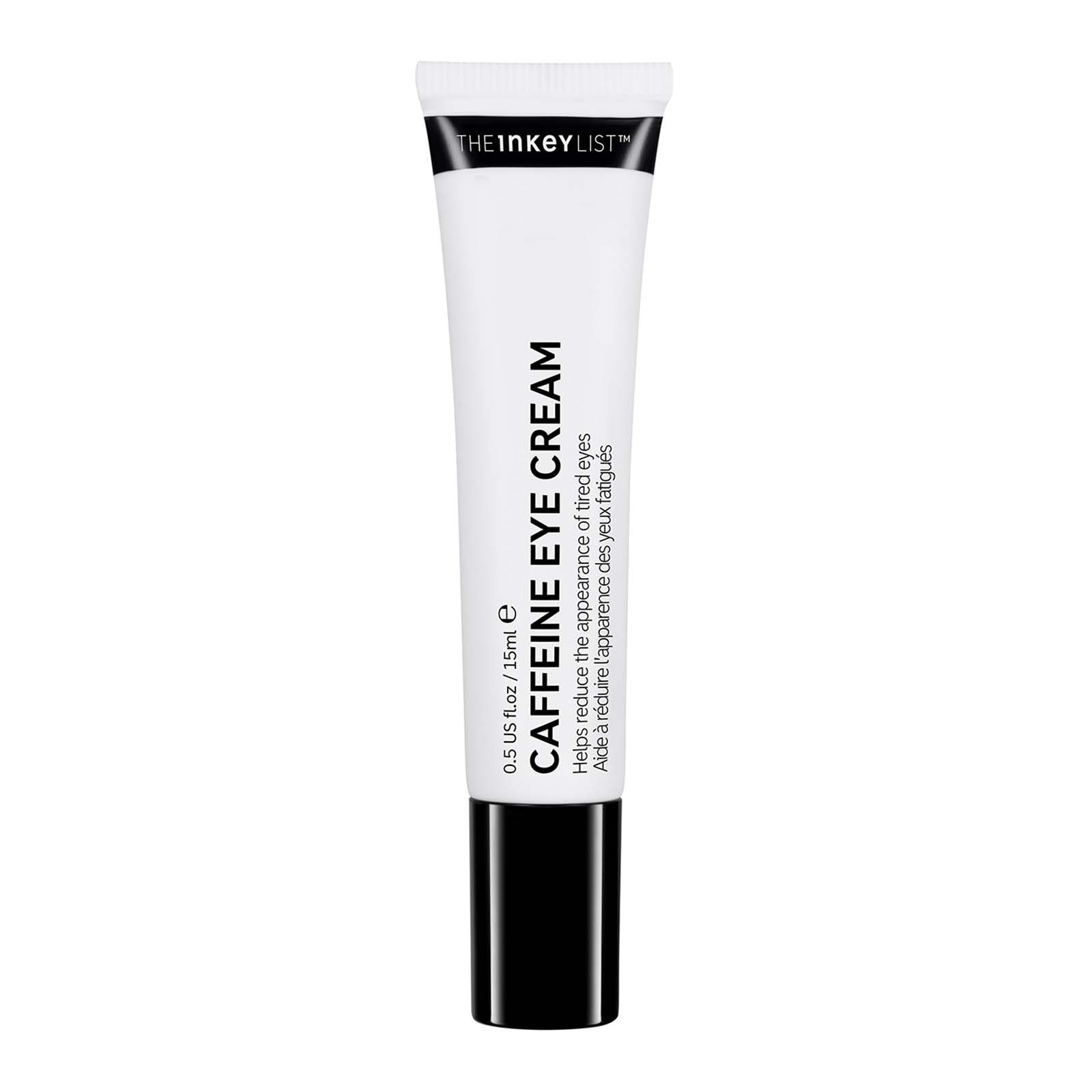
If you're looking for a more affordable eye cream, this one is great. Caffeine in eye creams helps to reduce water retention, and therefore puffiness, for a more awakened look.
3. Antioxidant
Much like the treatment stage in my recommended evening routine, you will notice here that I haven't called out any specific serum. While vitamin C serums are, no doubt, the most proven when it comes to antioxidant protection, much like retinol, I also appreciate that vitamin C is not the easiest ingredient for a no-fuss routine. While Dr Raja clearly recommends a vitamin C serum in the morning, I don't want to ignore that more sensitive and reactive skin types can find potent vitamin C irritating, which can result in redness and irritation breakouts. (If your skin can hack vitamin C, though, props to you—it's a stellar ingredient to have in your AM serum.)
However, any good antioxidant serum is still a great addition for your morning treatment. Vitamin C is the antioxidant that has the most scientific-backing when it comes to skincare, which is why you will find experts recommending it so highly. However, any well-formulated antioxidant in your skincare routine can help skin in its natural defences against external aggressors, such as UV and pollution (albeit, perhaps not to the same extent as a good vitamin C).
While I do like to dabble in vitamin C from time to time, my reactive skin is prone to breaking out with certain formulas, so at the moment I'm getting my antioxidant fix with serums that contain vitamin C in more gentle forms.
My antioxidant serum picks
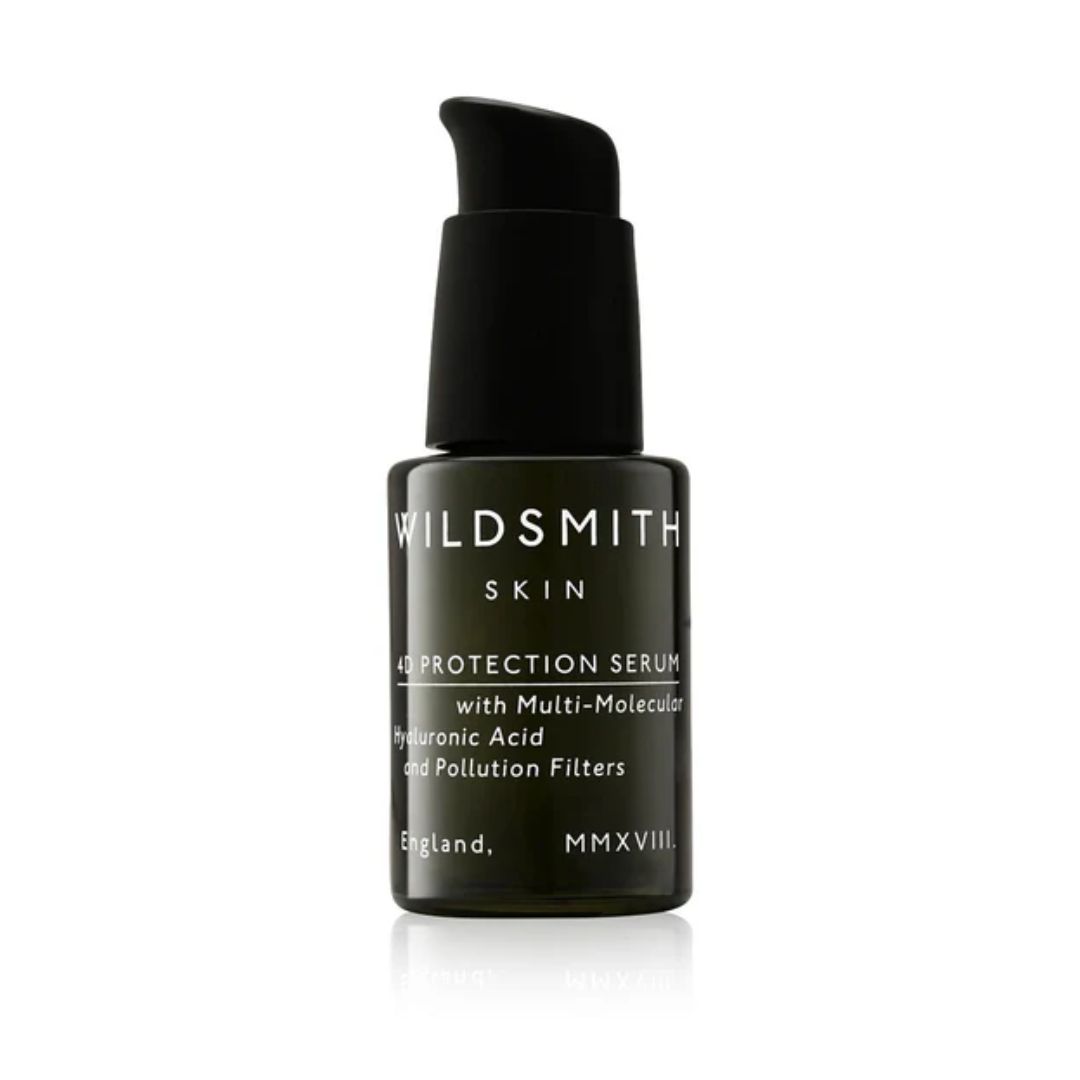
Wildsmith Skin is one of my favourite skincare brands out there for luxury skincare where nature meets science. This serum contains hyaluronic acid for a hit of plumping hydration, along with a whole bunch of plant and fruit extracts that have been cleverly formulated to deliver antioxidant benefits.
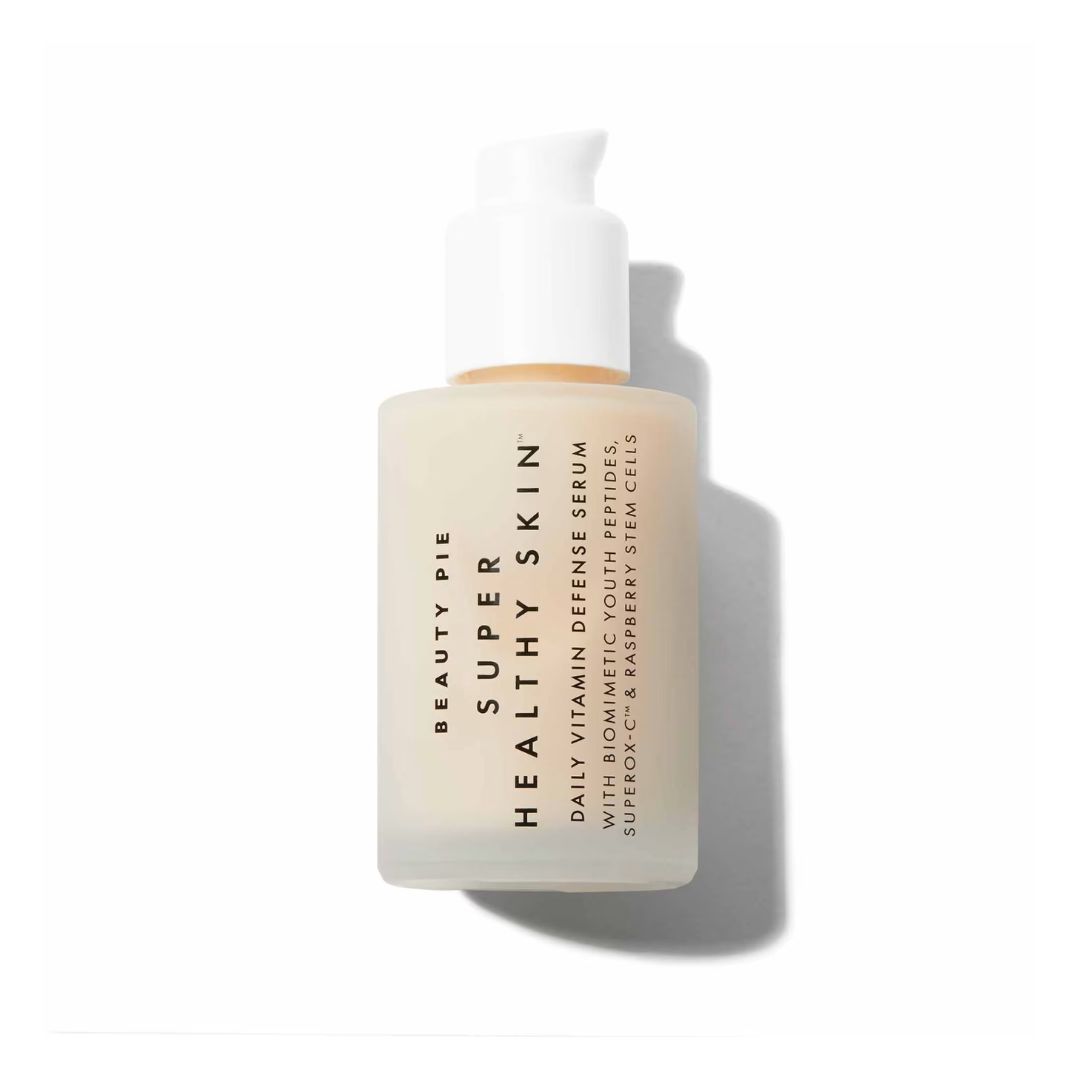
Price shown is members' price.
Another, more affordable, antioxidant serum that I love is this one from Beauty Pie. It contains Kakadu plum, which is naturally rich in vitamin C, as well as other botanical extracts to help boost hydration and glow.
4. Sun Protection
And now the most important step of any good basic morning skin routine. While an antioxidant serum can help your skin fend off damage at best and offer basic hydration at worst (still a great thing), your facial SPF is the hardest working product in your morning line-up. "If there's one skincare product you should never skip, it's the use of daily SPF. Always look for an SPF that has a factor of no less than 30, as UVA is the number one cause of accelerated skin ageing. Dark spots, wrinkles and skin sagging are instrumental in these telltale signs, and even when it's not sunny, these rays are still emitting," says Dr Raja.
And while so many people hate the feeling of SPF, I have spent so long trialling different formulas that I have now found broad-spectrum sunscreens that I actually really look forward to applying. If you find a great SPF (I can't recommend the below more highly, by the way), you won't feel the need to use a morning moisturiser.
My top facial SPF picks
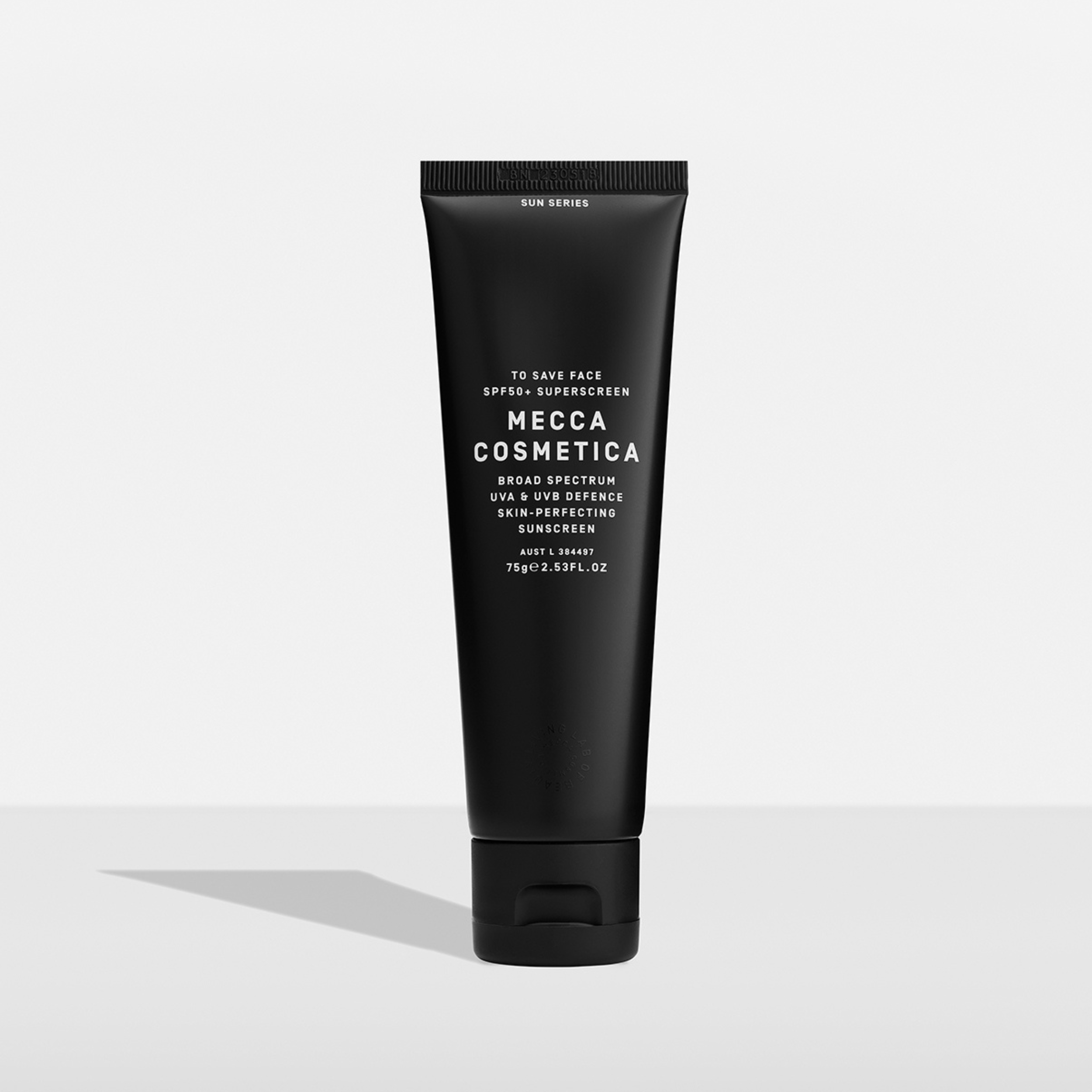
I challenge anyone to try this SPF and not fall instantly in love. It feels like a luxurious moisturiser, and I genuinely adore putting it on every morning. My skin has never looked better since introducing it to my daily routine. Genuinely, there is nothing more I can say on the matter—please, just try it.
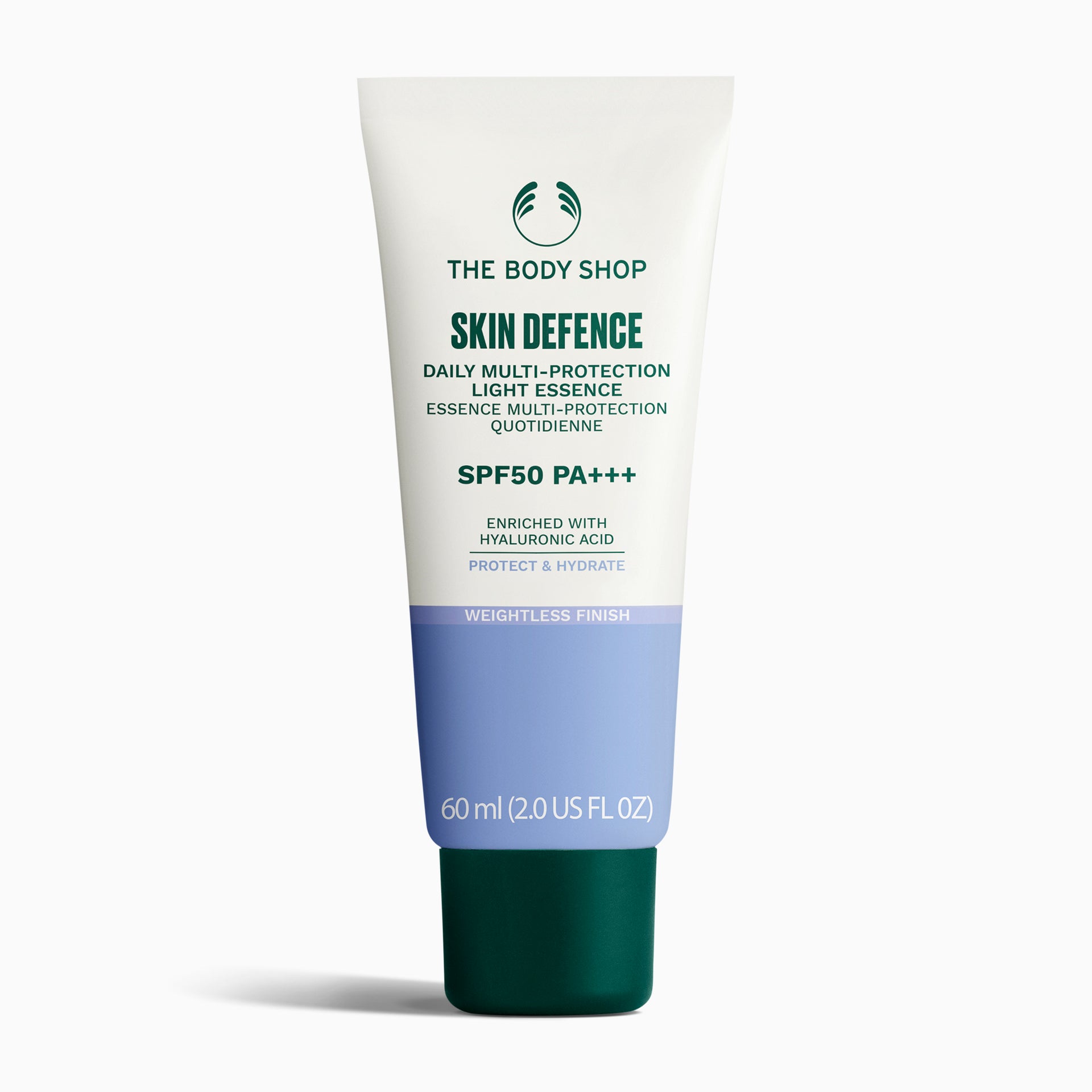
This has long been one of my favourite daily SPFs, and even after all these years, it still sits in my top three of all time. It is seriously lightweight and leaves skin with truly next-level, natural-looking radiance.
Shannon Lawlor is the beauty director at Who What Wear UK. With over a decade of experience working for some of the beauty industry’s most esteemed titles, including Marie Claire, Glamour UK, Stylist and Refinery29, Shannon’s aim is to make the conversation around beauty as open, relatable and honest as possible. As a self-confessed lazy girl, Shannon has an affinity for hard-working perfumes, fool-proof makeup products and does-it-all skincare.
-
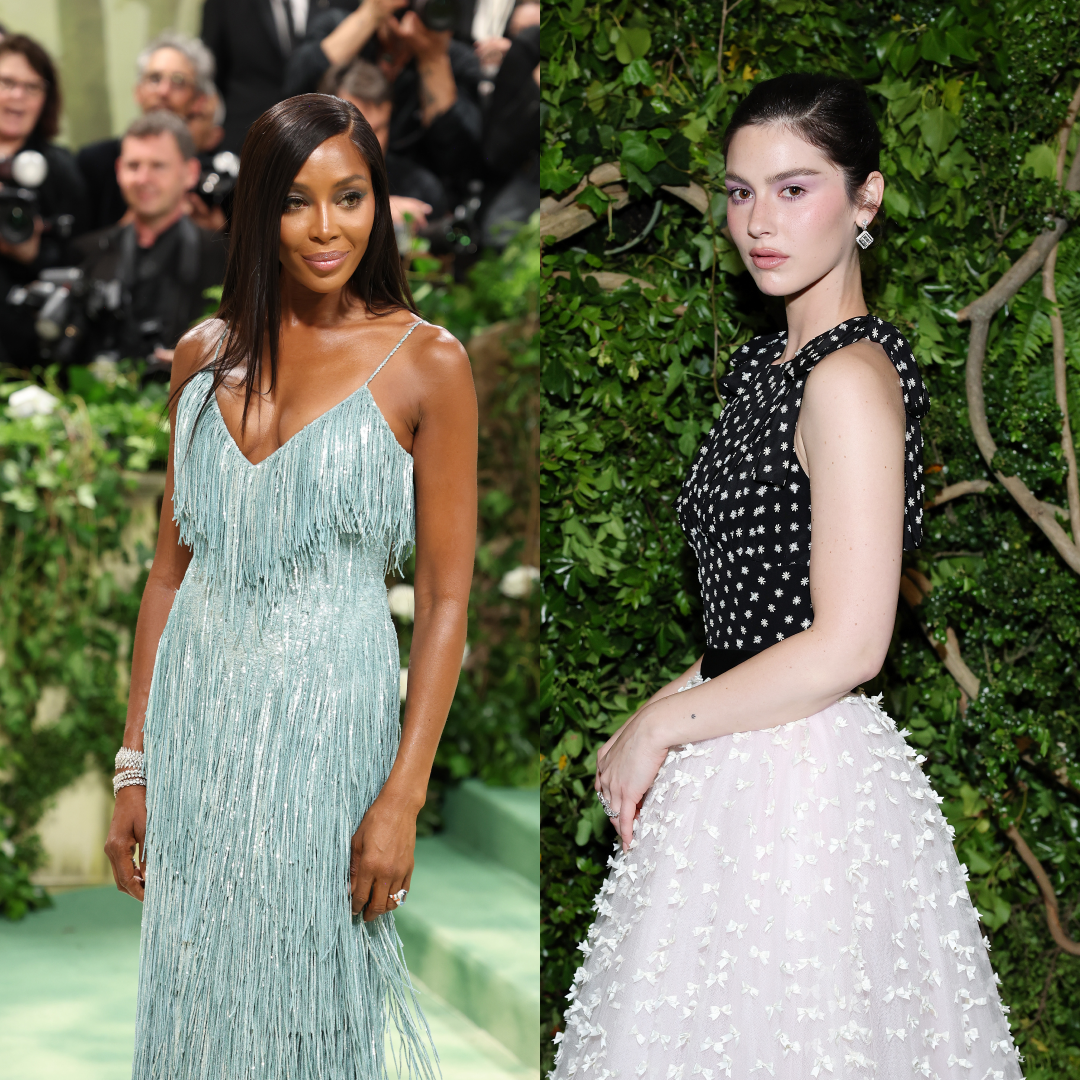 All Your Favorite Celebs Book This Lymphatic Drainage Expert Before Events—I Scored Her At-Home Tips
All Your Favorite Celebs Book This Lymphatic Drainage Expert Before Events—I Scored Her At-Home TipsGenius de-puffing tricks ahead.
By Jamie Schneider
-
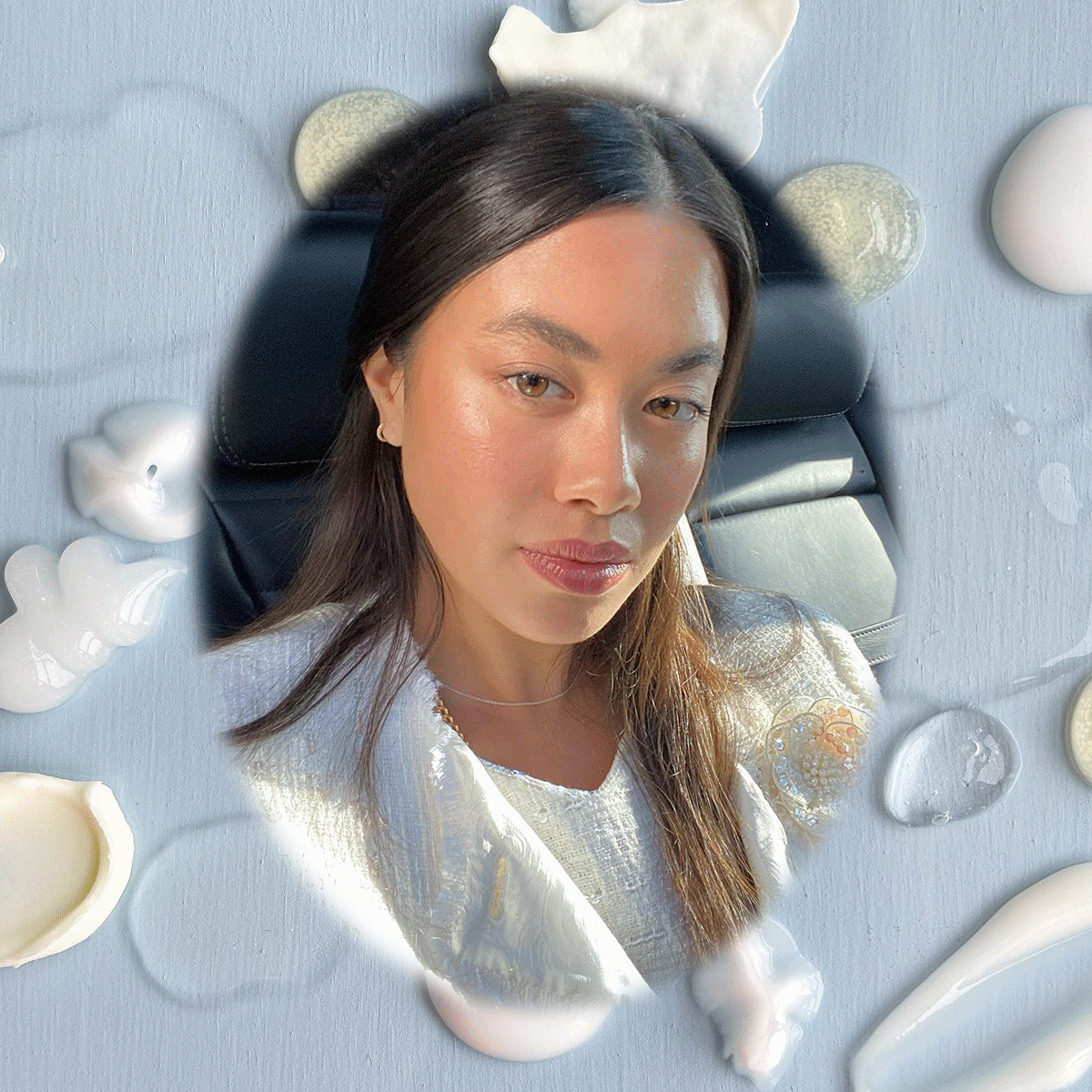 Derms Say This Is the Ultimate "Glass Skin" Ingredient, and You've Probably Never Heard of It
Derms Say This Is the Ultimate "Glass Skin" Ingredient, and You've Probably Never Heard of ItHere's the 411.
By Kaitlyn McLintock
-
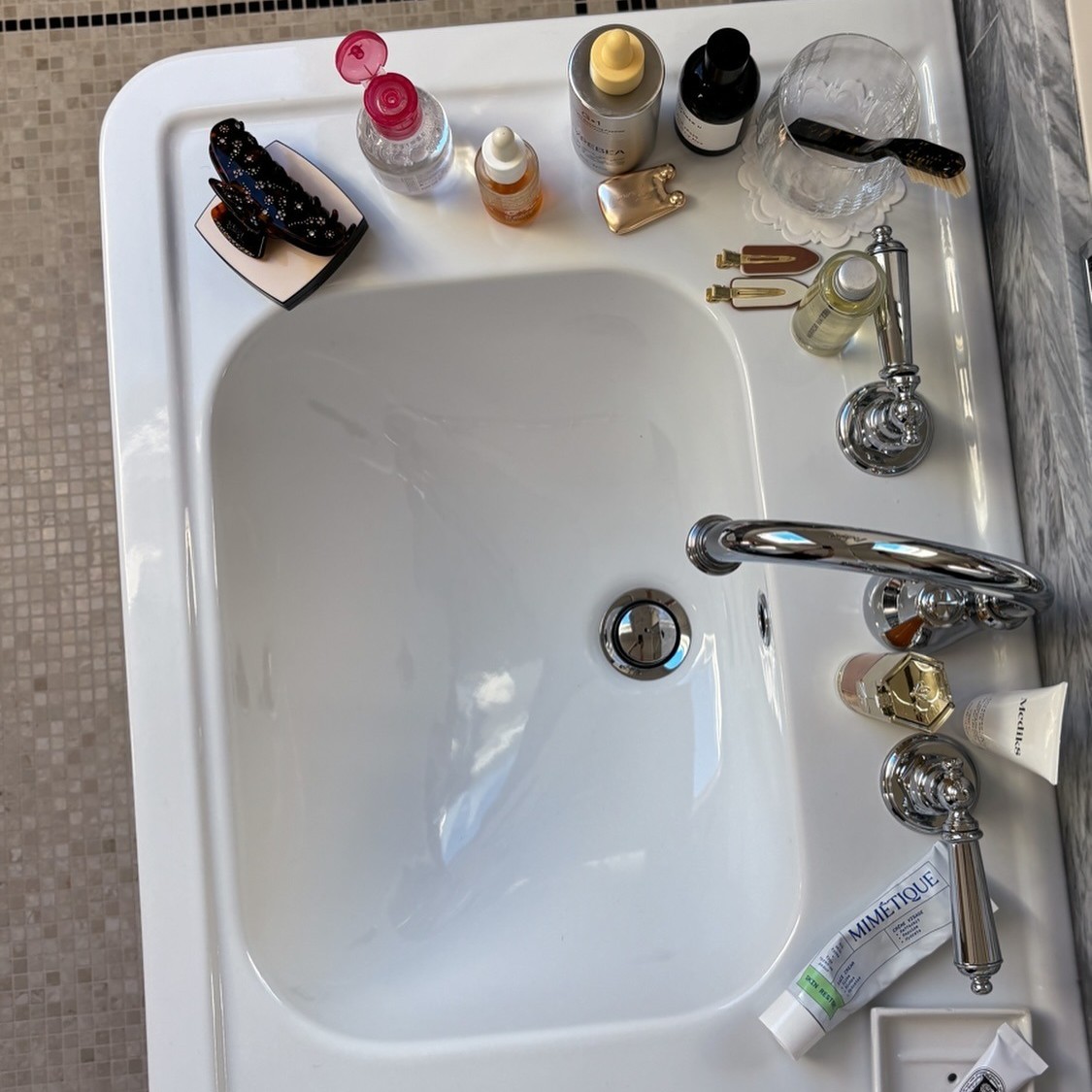 Derms and Beauty Editors (Hi, It's Me) Swear By This Straight-From-Nature Skin Hero That's DIY Mask–Approved
Derms and Beauty Editors (Hi, It's Me) Swear By This Straight-From-Nature Skin Hero That's DIY Mask–ApprovedThis is your sign to start slathering it on.
By Jamie Schneider
-
 Salma Hayek Pinault's Key to Youthful Skin? Moisturizer Sandwiches and This "Turkey Neck" Treatment
Salma Hayek Pinault's Key to Youthful Skin? Moisturizer Sandwiches and This "Turkey Neck" TreatmentNo retinol, no peels, and absolutely no injectables.
By Jamie Schneider
-
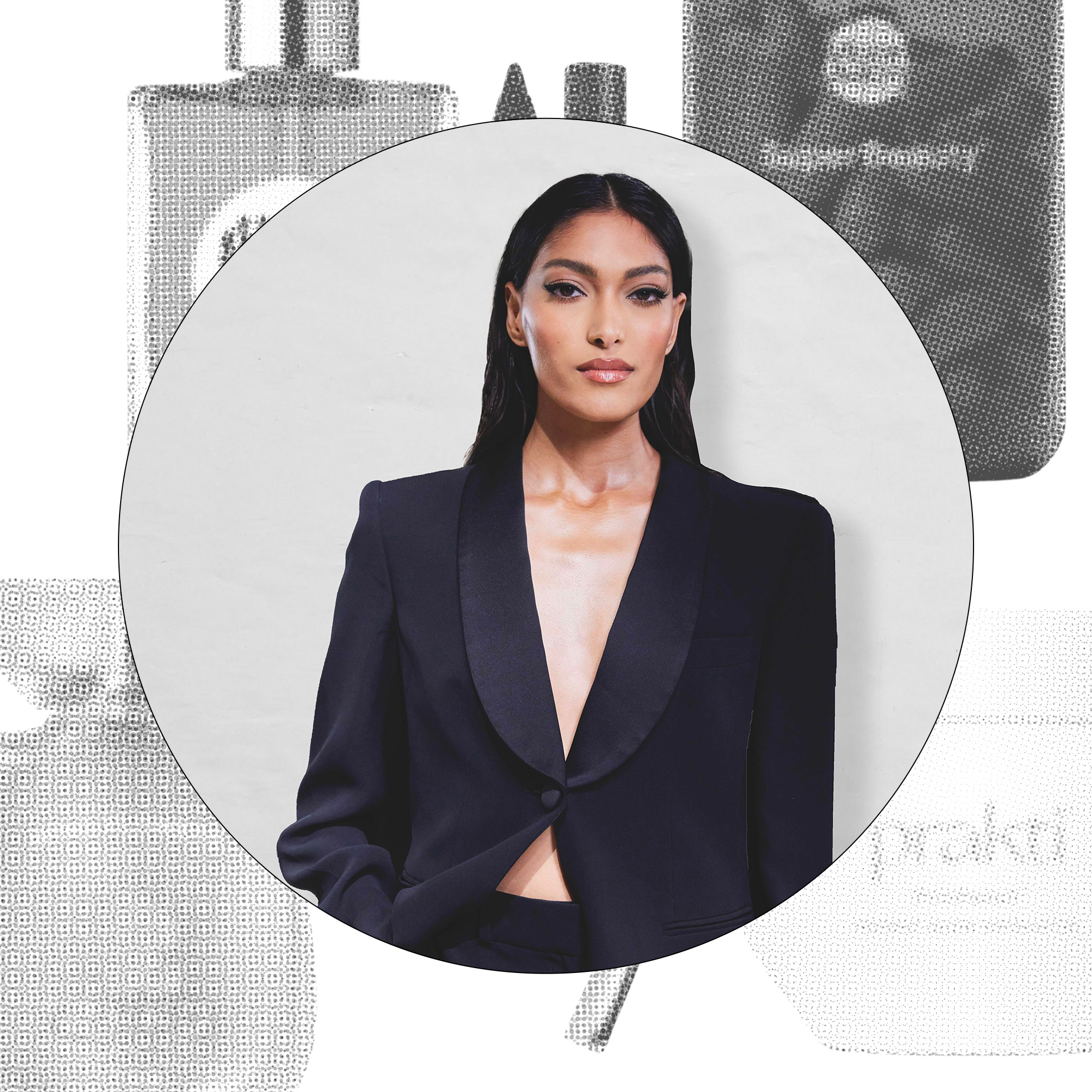 Model Pritika Swarup Has an Angel's Complexion, so I Asked for All Her Skin and Makeup Secrets
Model Pritika Swarup Has an Angel's Complexion, so I Asked for All Her Skin and Makeup SecretsHer must-haves for "runway-level radiance."
By Jamie Schneider
-
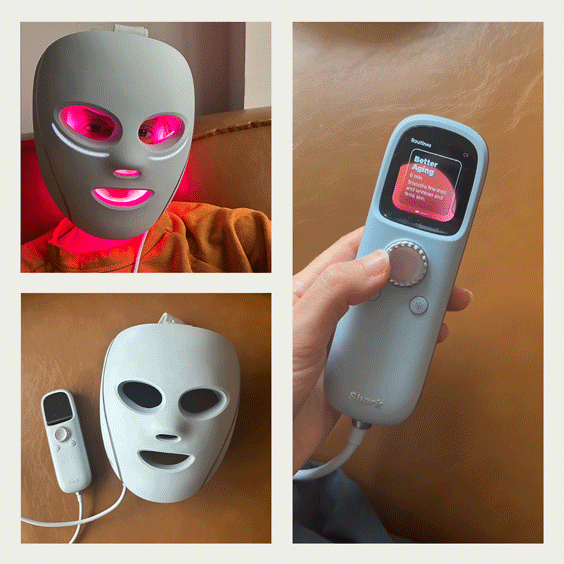 I've Tested $2850 Worth of LED Masks—Shark's New Model Is the One I'm Recommending to Friends
I've Tested $2850 Worth of LED Masks—Shark's New Model Is the One I'm Recommending to FriendsMy full review after wearing it for 67 days.
By Jamie Schneider
-
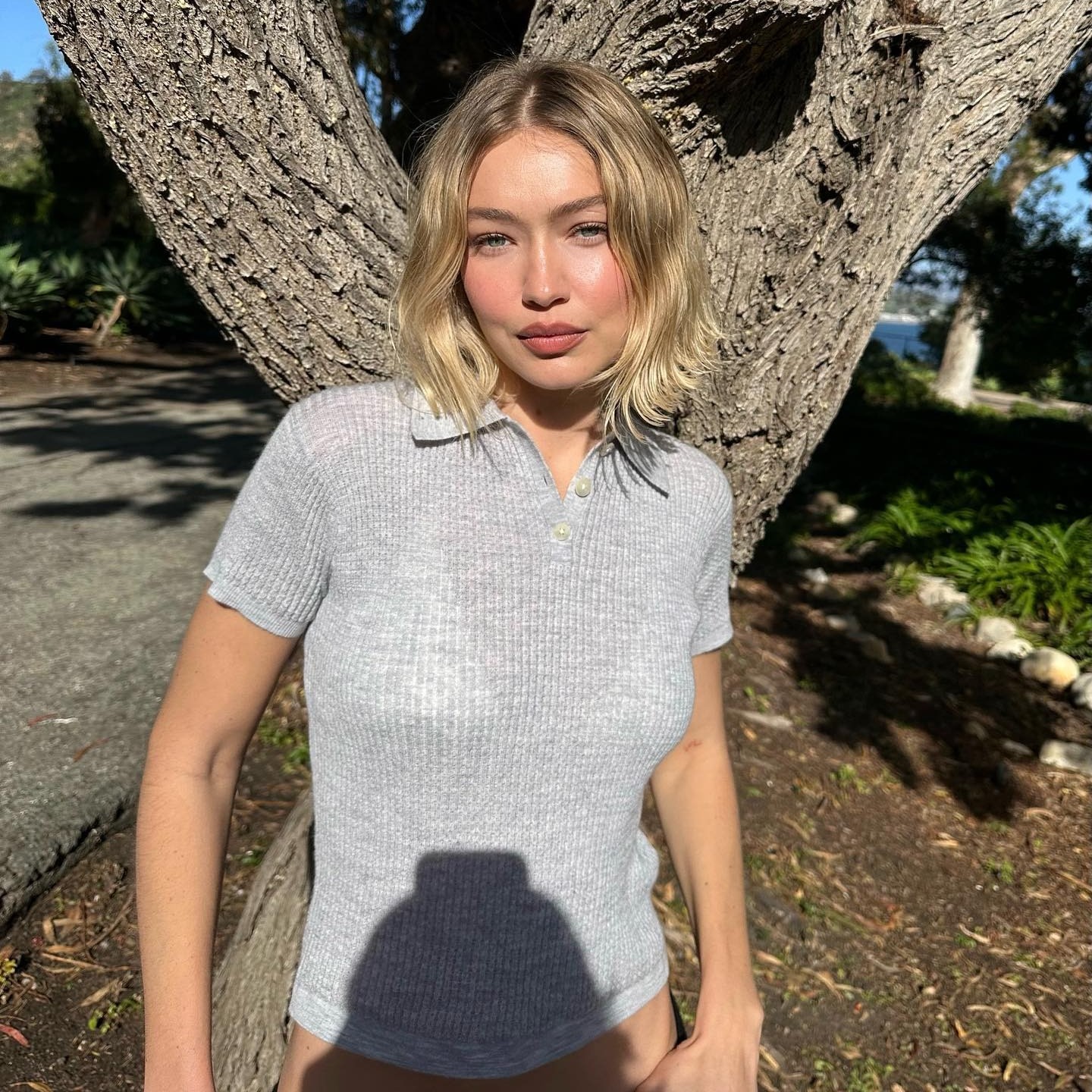 I Want to Glow Like Gigi Hadid This Summer—Here's Patrick Ta's Product Prescription
I Want to Glow Like Gigi Hadid This Summer—Here's Patrick Ta's Product PrescriptionI trust him.
By Jamie Schneider
-
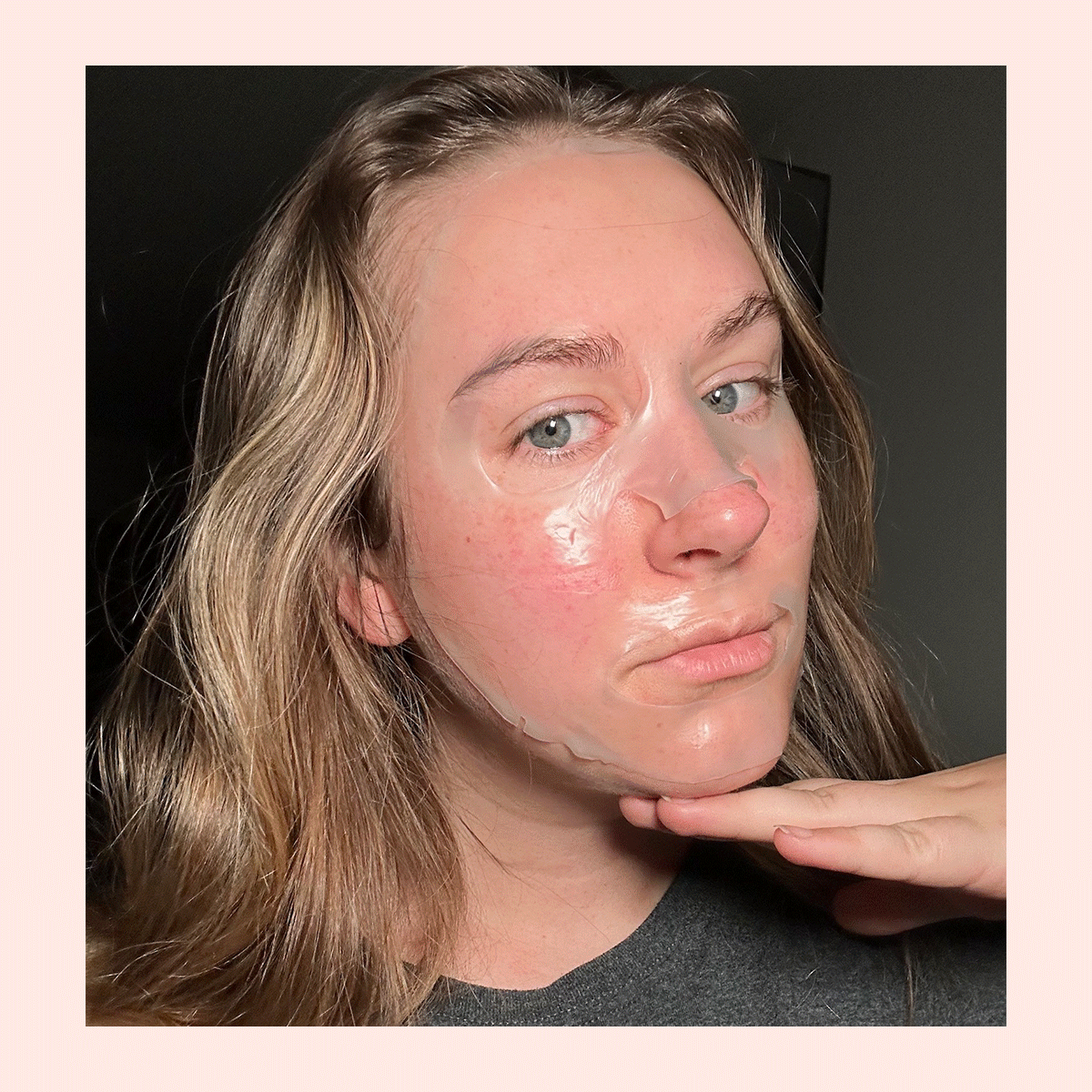 I Swear This Korean Collagen Mask Took 5 Years Off My Skin (and It's On Sale RN)
I Swear This Korean Collagen Mask Took 5 Years Off My Skin (and It's On Sale RN)I'm stocking up before it sells out (again).
By Kaitlyn McLintock

